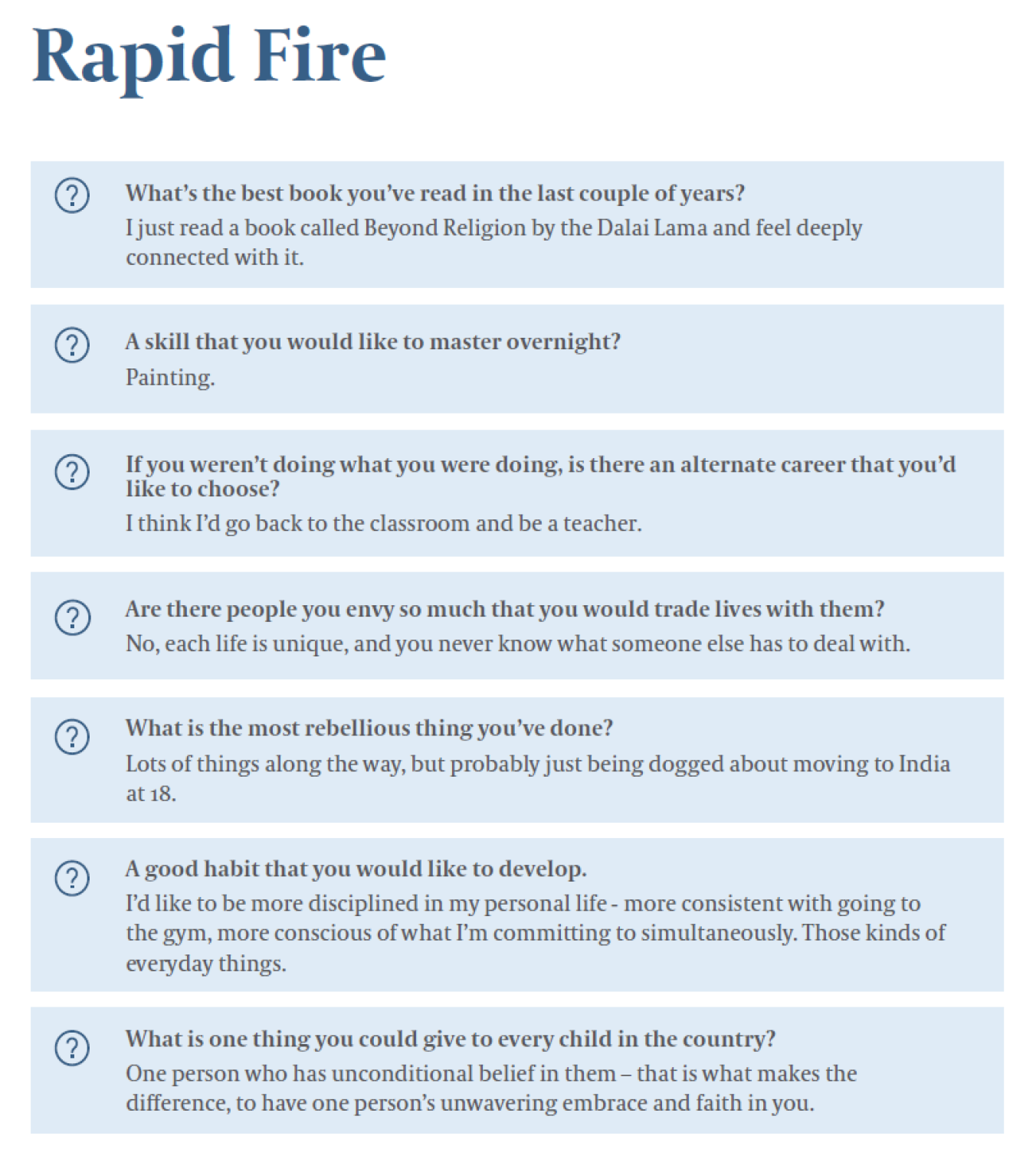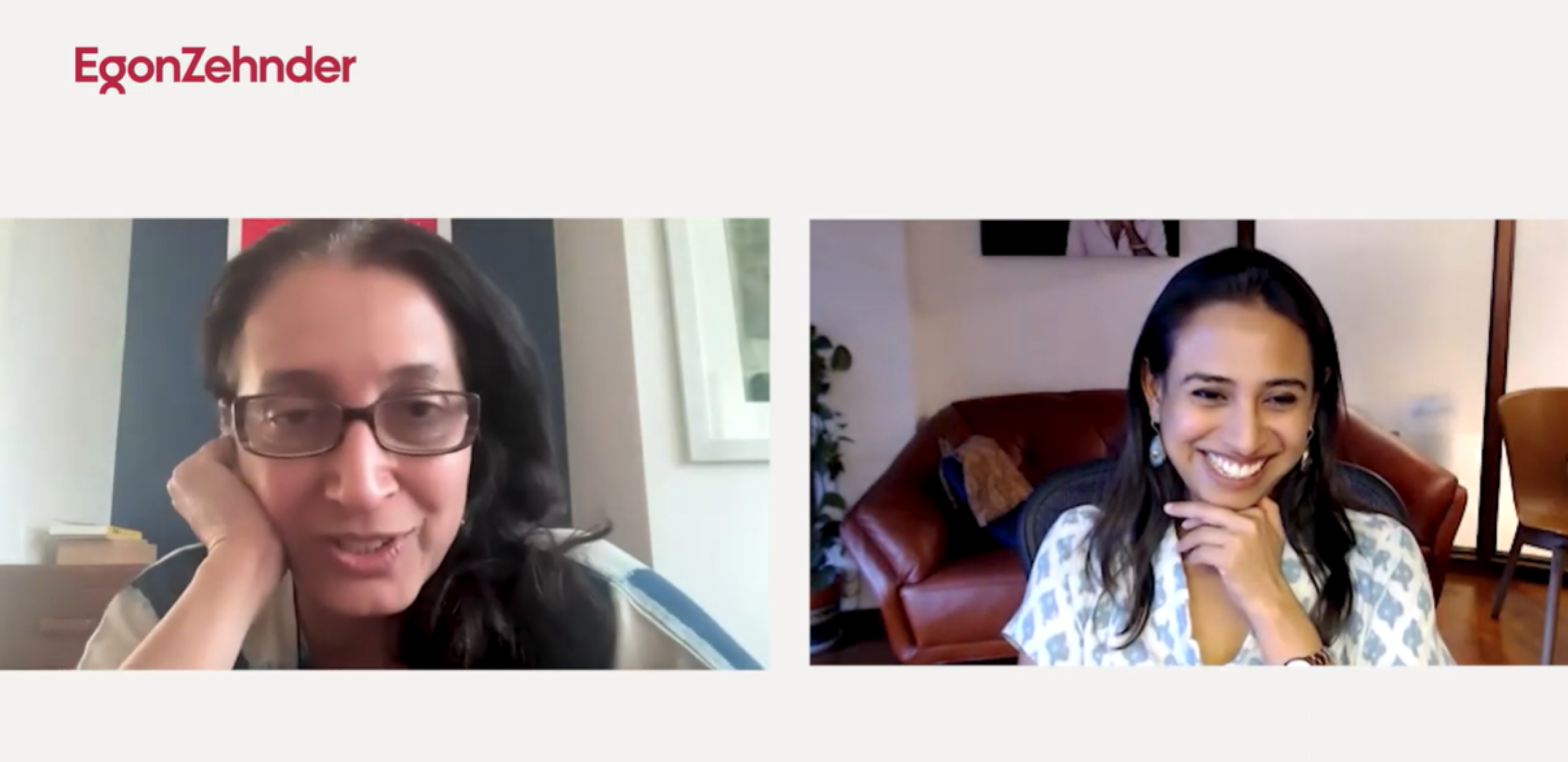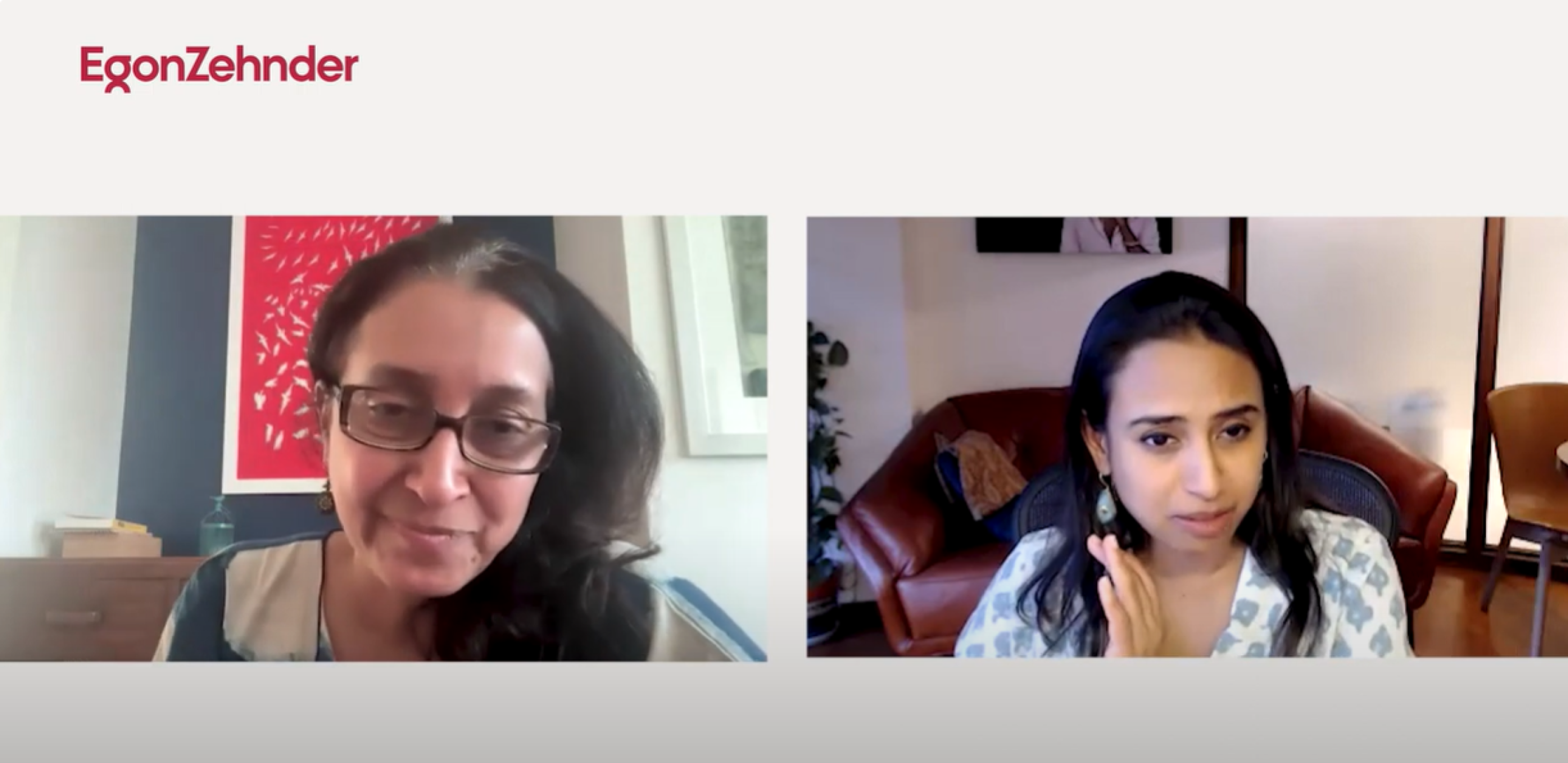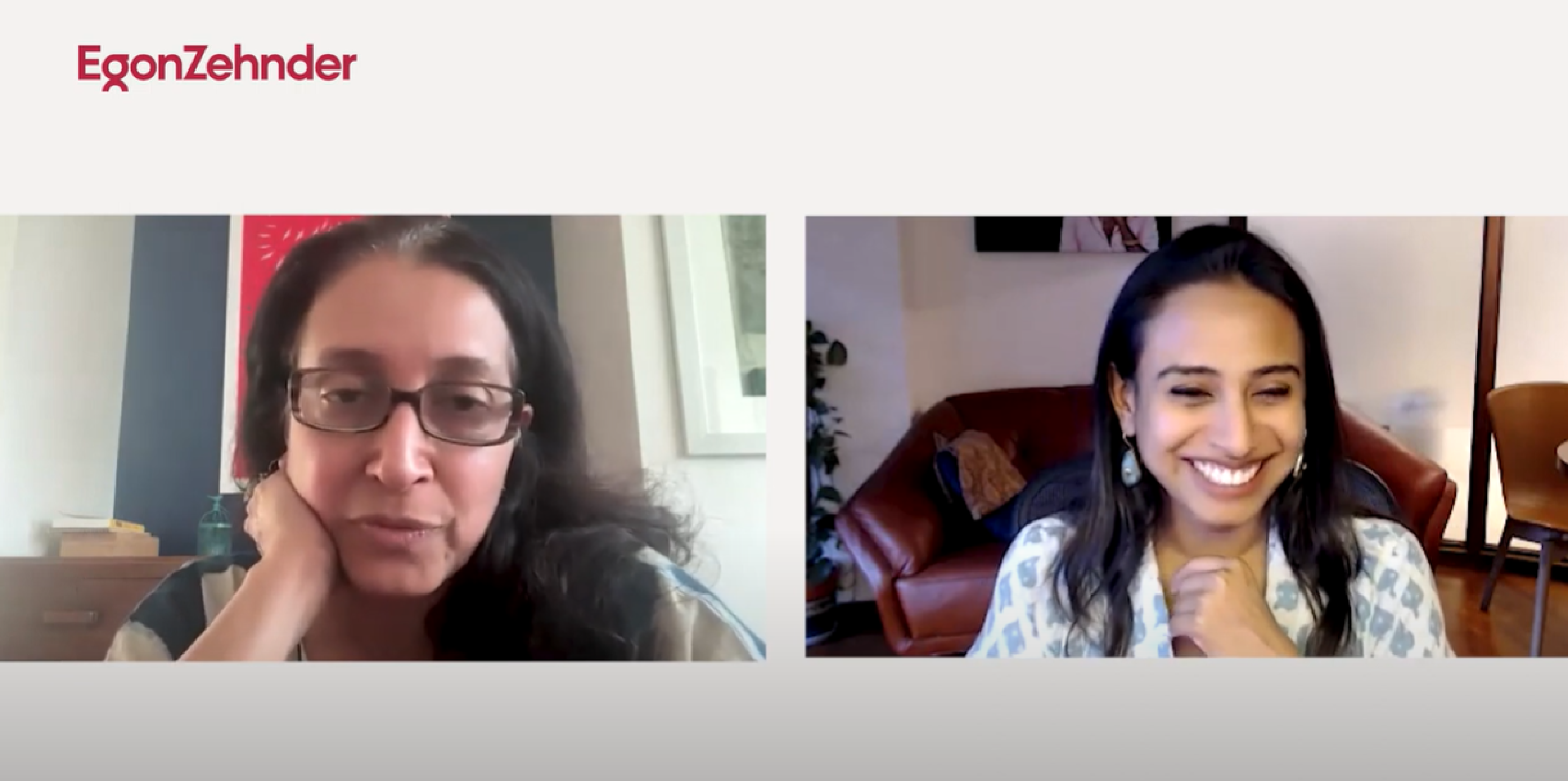Editor's Note: This interview is part of the Blazing a Trail: Women in Leadership series
Imagine growing up in five different countries, only to return home by sheer instinct. This is the remarkable journey of Shaheen Mistri. As the founder and board member of the Akanksha Foundation, and founder and CEO of Teach for India, she offers invaluable insights.
Central to her philosophy is the belief that education should serve not only personal growth but also societal betterment. Shaheen emphasizes purpose, people, and partnership, advocating for a paradigm shift where education becomes a tool not just for personal growth, but also for uplifting those around us. “Education is a tool not just to fulfil your potential, but to give opportunities to those around you,” she asserts.
In our interview, Shaheen reflects on her journey, highlighting the importance of identity and collective action. From Akanksha’s grassroots beginnings to the founding of Teach for India, her
story inspires positive change.
Discover more in our interview highlights:
What values, experiences and memories from your childhood have fundamentally shaped you?
I grew up living across five countries and moved 10 different schools due to my father’s career with Citibank, requiring us to move base frequently. Because I was a shy child, this didn’t come easy to me. With each relocation, came the need to adapt as I kept losing friends and had to make new ones.
On the other hand, moving across countries gave me incredible exposure to different cultures and people. I learned to value diversity a lot more growing up. I also spent a lot of time volunteering, which was another key formative piece for me. Every summer, I would volunteer with children and adopt lots of stray animals over the years. We always had pets at home, so I had a deep love for animals.
Those are the most salient pieces: A childhood full of travel, animals, and experiences with volunteering.
How did your parents’ interest and choices shape your approach to the world?
Both my parents had a massive influence on me.
My mom had a dual career - she was a speech therapist for many years, and then she was a museum educator. As a speech therapist, we always had children with hearing and other special needs in and out of the house. Her interest in art and museums shaped me to the point that I secretly wished I was an artist.
My father influenced me differently with his strong work ethic and conviction as a banker, and a great passion for music. His discipline and values, along with his love for music (I studied classical piano for about 10 years…) is something that has become a big part of my life today.
Having seen a variety of backgrounds and lived in many places, what made you find your way to India?
My childhood was very special, filled with lots of wonderful people, experiences, hobbies, and school. Moving back to India was a very strong instinct by a newfound need for roots, and whose seeds were planted over years as we kept visiting India every summer.
I was 18 and had finished my first year of undergrad at the Tufts University in the U.S. and was in India on vacation. I was in a taxi one day and a couple of kids who were seeking money on the traffic signal ran up to my window – their faces and condition stirred something in me. I felt a sudden instinct directing me to stay back and I put myself to work. This instinct was seeded over the years by volunteering with kids and watching my mom help children. I felt the need for a stronger identity and I found that in India.
All of that probably culminated in that strong instinct that day and I decided to stay.
When you acted on this instinct and came back to India, how did people around you react to it?
This was 34 years ago and a very different time in India. I had worked hard to get into Tufts, and it was a good university. People were trying to move to the U.S., and here I was wanting to come back. The overarching sentiment was of that of astonishment. My parents had never imposed their ideas on me, but they were worried too. They nudged me to finish the university and then decide if I wanted to pursue this idea. Eventually, we reached a compromise that if I got into a good college in India, I could stay. Overall, I think they made peace with it and others eventually got around.
What was the learning and unlearning process like during your first year in India?
I’ve always been slightly rebellious. I kept my admission at Tufts for a year to keep a door open, and everyone thought that I would go back. I was doing something that people didn’t think would succeed. I did not entertain the thought that it was difficult. I just jumped in, determined to make it work. I did manage to get into St. Xavier’s College and had grandparents whom I was very close to in India. I stayed with them, so I wasn’t completely on my own. I had the family support and a small community of friends here.
Overall, I just loved being back. I felt like I was doing something important that I wanted to do and just took one step at a time in pursuit of that idea.
What made you throw yourself into education, giving rise to Akanksha in your early college days?
My earliest memory is from the age of 12 when I used to write a diary quite regularly. There’s a little poem that I had written about wanting to make the world better and believing that was important.
When I came back to India and started walking around the community, I felt the overwhelming need for education. I felt that it could resolve most of the issues that people grapple with in poverty. I genuinely believed that, when people can think for themselves and know what they believe in, they can do most other things themselves. That felt like an important opportunity to give people. All these years later, the reason I am here is simply that I love kids and believe so much in their potential. It was an important issue and something I could learn. That combination led me to education.
What you undertook 34 years back was not an easy challenge. Who were your early sources of inspiration and where did you seek mentorship during that time?
When I started at Akanksha, we were all volunteers. The people who inspired me, our founding board of trustees, were all 18 years olds like me. It was like a college project. We depended a lot on people around us, largely family and friends for advice. We read a lot, asked a lot of questions and sought a lot of help. We may not have known exactly what we were doing, but there was idealism and passion, which people could see. People were incredible and very generous with their advice and their friendship in those early days.
You pursued a formal master’s degree in education from the University of Manchester. Were there parts of that course that seemed impractical for a country like India, or did it open more avenues for you?
You really need to choose what you do carefully. For me, it was a chance to zoom out and look at my work at Akanksha with fresh eyes. I wanted to make sure that Akanksha could sustain while I was away as I did leave it with friends who were all volunteers. There was a risk that it could all collapse. My degree was in education, and there were a lot of older people in my class, which was interesting. However, it wasn’t one of the most formative learning experiences for me. I found that my learnings from teaching and interacting with children and their families were much more profound. My biggest lessons around leadership came from that experience.
Eventually, all those things led you to create Teach for India. What led you to that approach?
There have been so many shifts, and that is the only constant. There has been a shift from feeling that I can change the world to understanding that I can change myself and hoping that it will create some ripples. There was a shift from belief in individuals to belief in collectives. A shift from anger at the way the world was to empathy and understanding. A move from an activist approach to a mindful partnership.
Crafting a journey and impact like yours requires an army of empathy as well as outcomes in those who are with you in this journey. How do you shape that approach?
It has always been about creating a balance between empathy and care on one side and holding high expectations from people on the other side—both equally important. That’s still work in progress – knowing where to stand on that spectrum each day, where to challenge more, where to care more and how to challenge with care is an important aspect of leadership. At Teach for India and Akanksha, it has been equally important to build mindsets and values as much as technical skills. Where I’ve gone wrong in my journey is where I’ve only done either one of the only. We give this thorough consideration when recruiting, with a whole round in
the hiring process that just looks at culture and core values. During our onboarding inductions and appraisal processes, we harp equally on achievement of goals and on the journey towards the goal. I think that balance is beautiful to try to hold.
Zooming out and looking at the world at large, do you feel human beings are less empathetic today than we were a few decades ago?
I think we’ve gone too far towards the side of self. Unless personal goals are balanced by an understanding of what matters for others and the world, we’re going to land ourselves in an unsustainable world. In today’s world, we raise our voice more powerfully than we’ve ever before, especially with social media at our aid. People have a lot more self compassion and care than in the past but are unable to embrace different perspectives and ways of being without feeling the need to cancel it or change it. There is much more polarization and much less listening. With education, we can break these walls. With other children at school, you learn about living in harmony with people from different backgrounds, religions, or races. My concern is with higher education, universities were created to be spaces of dissent and dialogue—your view was either reaffirmed, or reformed. But today it has become scary to raise your voice. That needs to shift.
Speaking of dissent and divergent views, have you been open to seeking feedback?
I deeply value learning. Every year, I find something new to learn, and that comes from the excitement of getting better at different things. This also stems from the inner journey that I have undertaken in the last 20 years. I find that people’s feedback helps me really reflect within. I think that if you feel in control of the feedback, it’s much less threatening and you welcome it more. You should be able to take what you want from the feedback. I also realized over time that being gentle on myself was important.
Shaheen, you are a global inspiration in the development sector – what would you like to see change?
I reflect a lot about seeing change in purpose, people, and partnership:
The first thing that needs to shift is our understanding of the purpose of education. Education has become a rat race to advance self. But when we
expand the purpose, education is a tool not just to fulfil your potential, but to give opportunities to those around you. If we change the purpose of education, we will change the assessment system.
The second thing is that there’s a lot of emphasis in India on programs. We want to invest in programs that can be scaled given the spread of the country. We need to change the aspirational value of coming into the teaching sector. We need to bring our most motivated, highest performing people into education. That needs to change dramatically.
The third thing is the role of the child in the system. We need to think of them not as a problem to be fixed, but as our partner to solve the problem. Adults bring the wisdom and experience, and children bring curiosity, idealism, and hope; these combined can be so powerful.
Do you wish you had done anything differently?
The short answer is no—not because I haven’t made a ton of mistakes, but I feel like everything is the way it’s meant to be. I have reached that place in life where I can value the things that didn’t go well in life for their
place in my journey.
Earlier, my bar was very high. I was an angry younger person. I wish I had gone down the journey with more love, patience, and compassion. Raising my two daughters along with work, I was very hard on myself. But I feel grateful for all of it, the ups and downs of life. I also feel very privileged to have always had a supportive group of people around me who have believed in me and been my cheerleaders along the way, especially amid the difficult times.
How would you like the world to remember you?
As somebody who is kind and who did a bunch of small things with a lot of love, adding up to something significant and meaningful.









